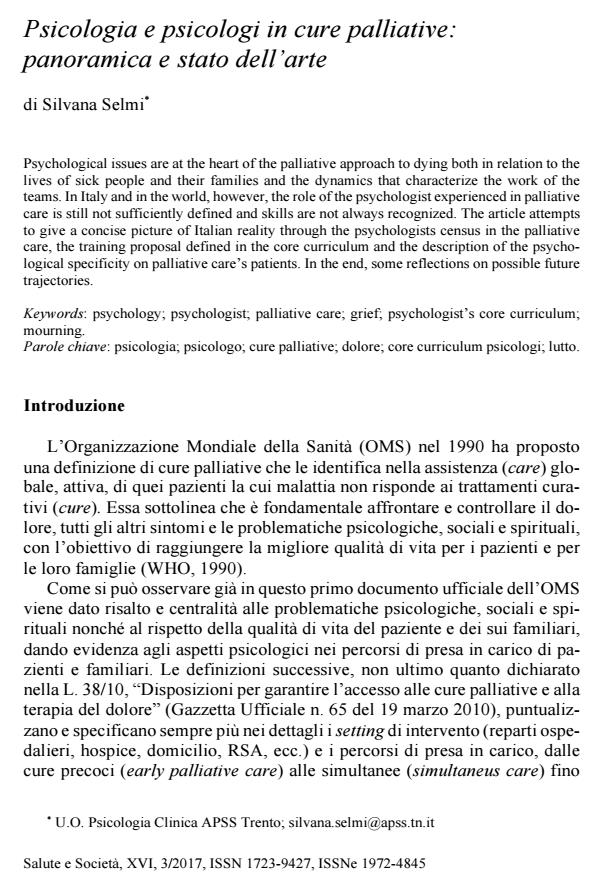Psicologia e psicologi in cure palliative: panoramica e stato dell’arte
Journal title SALUTE E SOCIETÀ
Author/s Silvana Selmi
Publishing Year 2017 Issue 2017/3
Language Italian Pages 13 P. 45-57 File size 73 KB
DOI 10.3280/SES2017-003005
DOI is like a bar code for intellectual property: to have more infomation
click here
Below, you can see the article first page
If you want to buy this article in PDF format, you can do it, following the instructions to buy download credits

FrancoAngeli is member of Publishers International Linking Association, Inc (PILA), a not-for-profit association which run the CrossRef service enabling links to and from online scholarly content.
Psychological issues are at the heart of the palliative approach to dying both in relation to the lives of sick people and their families and the dynamics that characterize the work of the teams. In Italy and in the world, however, the role of the psychologist experienced in palliative care is still not sufficiently defined and skills are not always recognized. The article attempts to give a concise picture of Italian reality through the psychologists census in the palliative care, the training proposal defined in the core curriculum and the description of the psychological specificity on palliative care’s patients. In the end, some reflections on possible future trajectories.
Keywords: Psychology; psychologist; palliative care; grief; psychologist’s core curriculum; mourning.
Silvana Selmi, Psicologia e psicologi in cure palliative: panoramica e stato dell’arte in "SALUTE E SOCIETÀ" 3/2017, pp 45-57, DOI: 10.3280/SES2017-003005